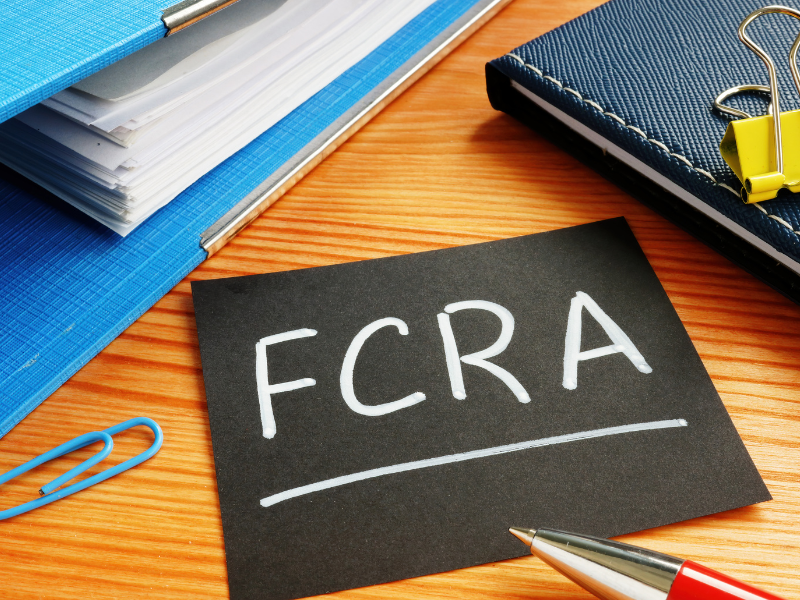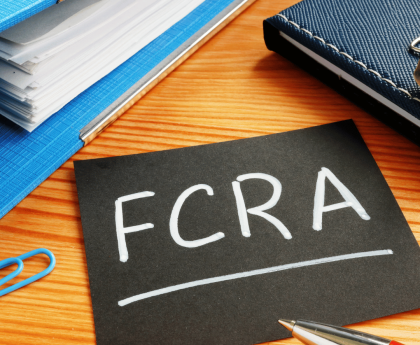FCRA Registration: Eligibility, Process, and Benefits
FCRA Registration-The Foreign Contribution (Regulation) Act, commonly known as FCRA, is a crucial piece of legislation in India that regulates the acceptance and utilization of foreign contributions and foreign hospitality by individuals, associations, and organizations. It is essential for organizations seeking to receive foreign contributions for various charitable, educational, or social causes to understand the FCRA registration process, eligibility criteria, tax benefits, deductions, sections, and the grant-in-aid system. In this article, we will delve into the intricacies of FCRA registration and its related aspects.
FCRA Registration Process
Step 1: Eligibility Assessment
Before embarking on the FCRA registration process, it is crucial to determine whether your organization or association is eligible. Eligibility criteria may vary depending on the type of entity seeking registration. Generally, the following entities are eligible:
Non-Governmental Organizations (NGOs):** NGOs, including charitable trusts, societies, and Section 8 companies, can apply for FCRA registration.
Associations:** Associations, groups, or clubs involved in social, cultural, economic, educational, or religious activities are eligible.
Section 25/Section 8 Companies:** Companies established for promoting commerce, art, science, sports, education, research, social welfare, religion, charity, protection of the environment, or any other similar objective can apply.
Step 2: Document Preparation
To begin the FCRA registration process, you need to gather the necessary documents. Here’s a checklist:
Registration Certificate:** Provide a copy of the registration certificate of your organization or association under the relevant law (e.g., Trusts Act, Societies Act, Companies Act).
PAN Card:** Submit a copy of the Permanent Account Number (PAN) card of your organization.
Bank Account:** You should have a designated bank account for receiving foreign contributions. Provide details of this account, including the name of the bank, branch, and account number.
Audited Financial Statements:** Submit the audited financial statements of your organization for the last three years.
Annual Reports:** Include copies of the annual reports for the previous three years.
Activity Report:** Prepare a detailed report of the activities undertaken by your organization over the last three years, showing how they align with the objectives specified in your organization’s memorandum.
FCRA Declaration:** A declaration stating that your organization has not been involved in any undesirable activities or actions that could threaten the sovereignty and integrity of India.
Step 3: Online Application
The FCRA registration process is now conducted online. You should apply through the FCRA portal (https://fcraonline.nic.in). Here are the key steps involved:
1. **Create an Account:** Register on the portal and create an account using your organization’s details.
2. **Fill the Application Form:** Complete the online FCRA application form, providing all the necessary details and uploading the required documents.
3. **Payment:** Pay the applicable processing fee online.
Step 4: Verification and Approval
Once you submit your application, the Ministry of Home Affairs (MHA) will review it. They may seek additional information or documents if necessary. After a thorough examination, if your application is found to be in compliance with FCRA regulations, you will receive the FCRA registration certificate.
Tax Exemption and Deductions
FCRA registration brings several tax benefits and deductions to eligible organizations:
1. **Exemption from Income Tax:** Organizations registered under FCRA are exempt from income tax on foreign contributions received.
2. **Deduction of Expenses:** Expenditures incurred in the utilization of foreign contributions are fully deductible, provided they are consistent with the objectives for which the contributions were received.
3. **Exemption from Customs Duty:** Imported goods received as foreign contributions are exempt from customs duty.
4. **Audit Exemption:** FCRA-registered organizations are not required to get their accounts audited by the Comptroller and Auditor General of India (CAG).
FCRA Sections and Compliance
Understanding the key sections of FCRA is vital for compliance:
1. **Section 3:** This section outlines the eligibility criteria and entities that can receive foreign contributions.
2. **Section 4:** It defines the various restrictions on the acceptance and utilization of foreign contributions.
3. **Section 5:** This section specifies the procedure for FCRA registration.
4. **Section 6:** It deals with the registration certificate’s validity period, extension, and renewal.
5. **Section 7:** This section discusses the power to suspend or cancel FCRA registration.
6. **Section 9:** It outlines the procedure for appeal in case of suspension or cancellation of registration.
7. **Section 12:** This section defines the powers and duties of authorities under FCRA.
Benefits of FCRA Registration
FCRA registration offers numerous benefits to organizations and associations, including:
1. **Global Outreach:** It allows organizations to receive foreign contributions and donations, expanding their resources and capacity to carry out their missions.
2. **Increased Credibility:** FCRA registration enhances an organization’s credibility as it undergoes strict scrutiny, ensuring that contributions are used for legitimate purposes.
3. **Tax Benefits:** Tax exemptions and deductions reduce the financial burden on organizations and encourage foreign donors to contribute.
4. **Enhanced Accountability:** FCRA compliance necessitates regular reporting and auditing, fostering transparency and accountability.
Grant-in-Aid System
Under FCRA, the Indian government may provide grants-in-aid to registered organizations for specific activities and projects. These grants are typically aimed at promoting social welfare, economic development, education, and other charitable purposes. Organizations can apply for such grants through a prescribed process, which involves submitting project proposals and meeting the relevant criteria.
In conclusion, FCRA registration is a critical process for organizations and associations in India seeking to receive foreign contributions and donations. The eligibility criteria, documentation requirements, tax benefits, and compliance with FCRA sections are essential aspects to consider. By obtaining FCRA registration, organizations can access valuable resources, ensure transparency, and contribute to various causes that benefit society and the nation.
Source: FCRA Online Services




